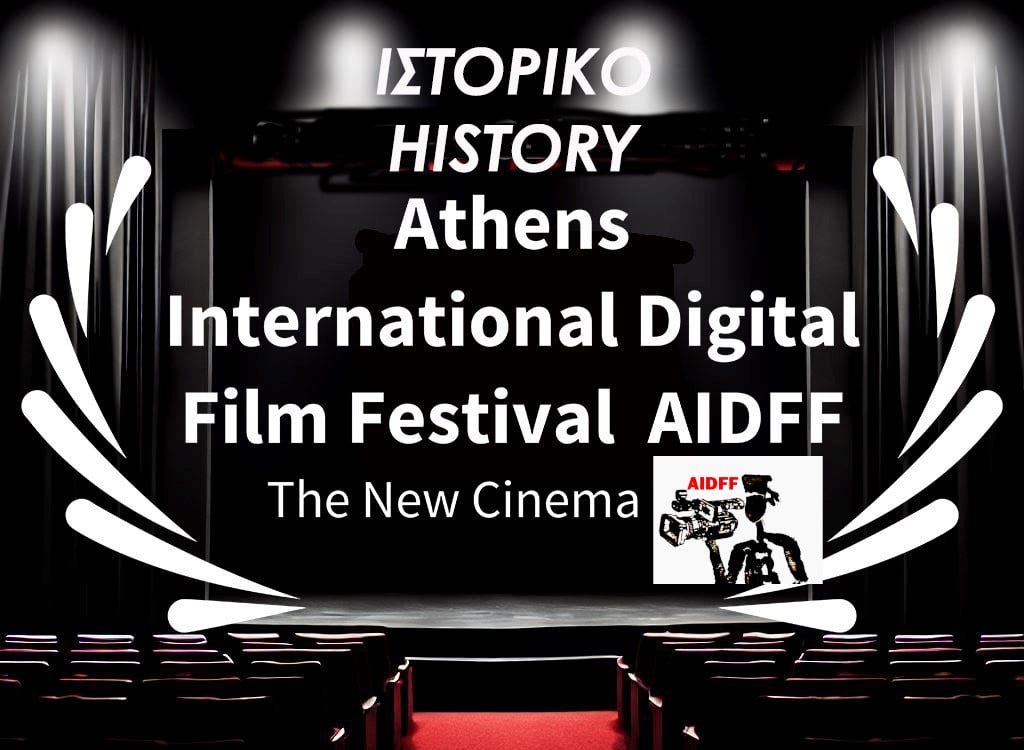Historical Overview

Athens International Digital Film Festival (AIDFF)
New Cinema – Historical Overview
The Athens International Digital Film Festival (AIDFF) was founded in 2011 and, for more than twelve years, has been one of the most vibrant and creative artistic institutions in the city of Athens. With passion, dedication, and vision, it supports both contemporary Greek and international film production, highlighting digital cinema as an equal and pioneering field of artistic expression.
The Festival was established at a time when digital means of film production were still considered unconventional and digital films were not yet fully accepted by the cinematic establishment. Anticipating the technological and aesthetic transition that was about to reshape the art of cinema, the AIDFF was among the first to consciously include the term “Digital” in its title, assuming a pioneering role in the legitimization and promotion of digital film creation.
Responding to the gap between the rapidly evolving technological reality and the conservatism of traditional film institutions, the AIDFF offered a platform to thousands of emerging filmmakers from around the world — artists who, until then, often had to disguise their digital works as “traditional” in order to be screened. The Festival broke these barriers, providing a free and open space for the cinema of the new era.
The inclusion of the term “Digital” in the Festival’s identity was never a mere technical reference but rather an ideological and artistic statement. Today, although digital technology has become the dominant standard in film production, the term retains a profound meaning. It represents the ongoing evolution of art through technology, the constant search for new expressive tools, and the redefinition of the cinematic experience.
Remaining fully aligned with technological and artistic innovation, the AIDFF presents all forms of cinematic expression — short and feature films, fiction and documentary, as well as contemporary audiovisual forms such as video art, video dance, experimental works, and animation. Through this inclusive approach, the AIDFF continues to stand at the forefront of cinematic dialogue and cultural innovation.
The expansion of digital technology has transformed not only film production but also the ways films are distributed and experienced. Digital platforms have made cinema globally accessible, promoting cultural diversity and creating a new, direct channel of communication between creators and audiences. From the traditional movie theatre to online streaming platforms, the cinematic experience has been redefined while preserving its artistic essence.
The “digital era” is no longer merely technological; it is deeply artistic and social. New cinematic practices highlight the dynamic relationship between art and technology, enriching the language of cinema with unprecedented forms of expression. Today, the notion of “New Cinema” is intrinsically linked to the “Digital”, marking the advent of a New Era in cinematic creation.
Since its foundation in 2011, the Athens International Digital Film Festival has remained a key institution in the international film landscape — open to new artistic and technological developments and fostering a creative space for encounter, inspiration, and exchange between filmmakers and audiences.
It screens films from all over the world, hosts discussions, presentations, and events that promote contemporary cinematic thought, and serves as a bridge connecting Greek cinema with the international film community.
Faithful to its founding principles, the AIDFF continues to champion cinema as an art of the present and the future — an art that evolves, experiments, and continually engages in dialogue with technology, culture, and society.


